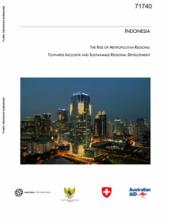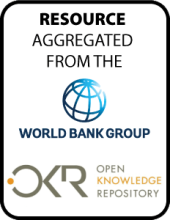Land Library
Welcome to the Land Portal Library. Explore our vast collection of open-access resources (over 74,000) including reports, journal articles, research papers, peer-reviewed publications, legal documents, videos and much more.
/ library resources
Showing items 1 through 9 of 156.In the wake of the revolution, Tunisian society is currently undergoing a significant transformation. In late 2011, the country's first representative government in more than three decades was formed, as the Constituent Assembly was seated.
In recent years, Indonesia has made great strides in economic growth and development. This growth has been accompanied by rapid urbanization that has transformed Indonesian cities.
This report investigates Egypt's
regional economic growth, explores the causes for
geographically unbalanced development, and proposes policy
options to make unbalanced growth compatible with inclusive
Over the last several years, the
Government of Togo has made important advances in the area
of social protection. Although Togo has had limited social
insurance and social assistance programs, the economic shock
This study examines the major
constraints of rural business entry and performance in
Yemen. The Yemen rural investment climate survey made it
possible to analyze rural investment climate constraints for
The East Asian and Pacific region has
achieved tremendous progress in poverty reduction in recent
years. However, further progress in poverty reduction may be
undermined by the high levels of vulnerability in many
The paper aims to provide an overview of
the gender disparities in three major domains-human capital,
labor market and entrepreneurship. In doing so, it builds on
the framework of the World Bank's regional gender
This report investigates Egypt's
regional economic growth, explores the causes for
geographically unbalanced development, and proposes policy
options to make unbalanced growth compatible with inclusive
The Central America region is a small market. The region contains around 43 million inhabitants (0.6 percent of total world population) who generate around 0.25 percent of the world's Gross Domestic Product (GDP).




